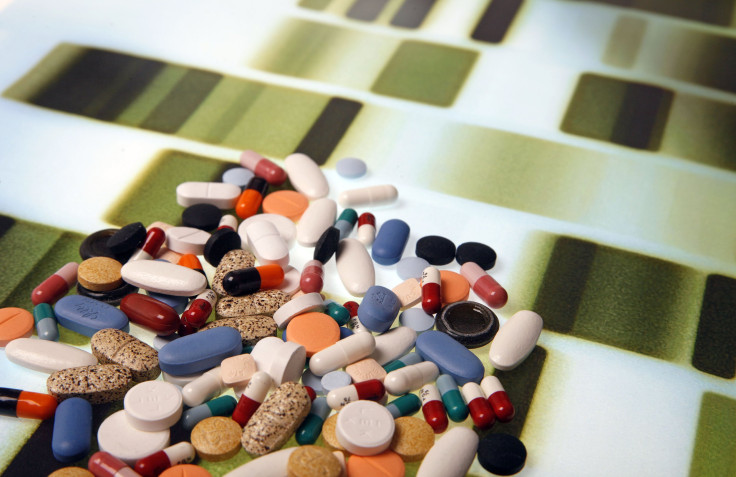Can Obama And Modi Settle The US-India Feud In The Pharmaceuticals Sector?

India and the United States have a problem in the pharmaceuticals sector. And drug-makers in both countries will be keenly watching whether President Barack Obama and Prime Minister Narendra Modi can do anything about it when the former comes visiting India next week as a state guest at the Republic Day celebrations in New Delhi.
The problem is mainly on two fronts -- on the one hand, Indian drug makers like Ranbaxy Laboratories Ltd, Sun Pharmaceutical Industries Limited and Wockhardt Ltd have been getting flak from the U.S. Food and Drug Administration (USFDA) for intellectual property rights (IPR) violations and for allegedly tampering with data; on the other hand, foreign pharmaceutical companies such as U.S.-based Gilead Sciences Inc and Swiss major Novartis International AG have been denied patents by India for their drugs.
THE USFDA BACKLASH
In 2014 alone, several India-based pharmaceutical companies were warned either by the Office of Compliance or the FDA's Office of Manufacturing and Product Quality for violations relating mainly to deviations from manufacturing norms or for their failure to pay the annual fee under the Generic Drug User Fee Amendment. These companies include Cadila Pharmaceuticals Ltd, Sun Pharma, Smruthi Organics Ltd and Marck Biosciences Ltd.
As this report in the Wall Street Journal points out, the U.S. regulator has been blocking shipments from Indian generic drug makers since 2013. And, the FDA issue is significant as it impacts Indian pharmaceutical exports to the U.S., which in 2013 amounted to $4.5 billion, or over a tenth of the $41.8 billion worth of goods India exported to the U.S. that year.
THE IPR PROBLEM
In April 2014, a U.S. Trade Representative (USTR) ‘Special 301 report’ on intellectual property protection had retained India on its “priority watch list”of countries that it alleges infringed on U.S. patent laws. Although countries such as China, Chile, Pakistan, Indonesia, Russia, Thailand, Venezuela, Argentina and Algeria, were also on the list, the report referred to India as "the largest source of counterfeit pharmaceuticals shipped to the United States."
The report further said: "Reports indicate that anywhere from 10-40 percent of drugs sold in Indian markets are counterfeit and could represent a serious threat to patient health and safety."
The Indian pharma industry reacted angrily to the allegations. In a paper released in July 2014, D.G. Shah, secretary general of the Indian Pharmaceutical Alliance, a lobby group, said that even as the U.S. retained India on its priority watch list, it had removed the Philippines, even though “there is hardly any difference in the nature of its complaints against India vis-a-vis the Philippines.
“The difference is the use of compulsory license by India. This is understandable because the local industry of the Philippines does not have capability to develop and produce generic version of a patented drug. Hence, even if the Philippines wanted to make use of this flexibility, it is incapable of using it. Instead, it has used parallel importation for access to affordable medicines,” Shah said in his paper.
Even Doctors Without Borders/Médecins Sans Frontières (MSF), an international medical humanitarian organization, criticized the (USTR) report for its stance on India.
"While the freedom of Indian domestic manufacturers to manufacture and sell affordable versions of any new essential medicine has been limited since 2005 because of its TRIPS (Trade-Related Aspects of Intellectual Property Rights) obligations, the country’s legislators also sought to balance the imperatives of the right to health and public health, by enshrining safeguards into the patent law and limiting the potential of pharmaceutical companies to abuse the patent system. This balance is now under threat due to the USTR’s pressure on India’s domestic policies, laws and judicial practices,” MSF said in response to the USTR report.
Last week, the Indian government rejected U.S.-based pharma company Gilead Sciences Inc’s patent request for its Hepatitis C drug Sovaldi, giving local Indian drug makers a shot at producing a generic, unlicensed variant of it. Earlier, in 2013, India’s Supreme Court had denied Novartis a patent in the country for its cancer drug Glivec. And, even as U.S. firms are now reportedly pushing India to ease rules for doing business, India wants its own officials present during FDA inspections.
Obama and Modi are expected to broach these seemingly intractable stances when they meet later this month, but it remains to be seen if any meaningful progress would be made.
© Copyright IBTimes 2024. All rights reserved.





















